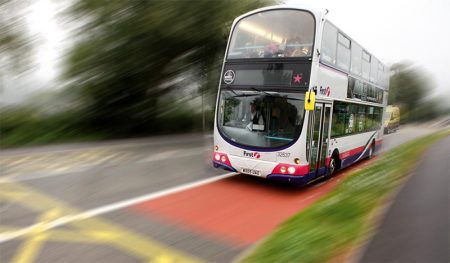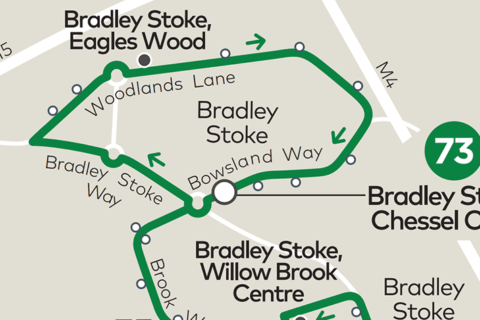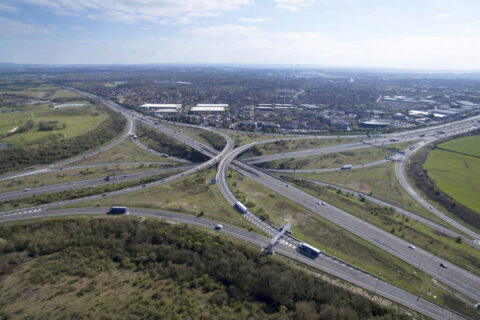Buses on the 73 route through Bradley Stoke are set to become less polluting, thanks to a £2.2 million grant from the government’s Clean Bus Technology Fund.
The route is one of 12 across Bristol, Bath and South Gloucestershire that will benefit from the award which will allow operator First Bus to cut emissions and help improve air quality across the wider region.
The funding was awarded in February by the Department for Transport following a successful joint bid by Bristol City Council, South Gloucestershire Council and Bath and North East Somerset Council.
Cllr Mhairi Threlfall, Cabinet member for transport at Bristol City Council, who led the bid, said:
“It is great news that we have been successful in our bid for this funding, which will help us to improve air quality across the region by making vital environmental upgrades to the bus fleet.”
“We will be prioritising these upgrades on the bus routes that we know to be the most polluted with levels of harmful air pollutants that are far too high.”
“This will form part of our continuing efforts to turn around the issues with air quality in our area and make Bristol a healthier place to live and work. I look forward to seeing this new technology being brought into action over the next year.”
The money will be used to retrofit emissions reductions technology on 81 buses that run on these 12 routes, which cover some of the most polluted roads on the wider network.
All 81 buses will be upgraded from Euro IV/V standard to Euro VI, which is the best environmental standard available and will cut the release of harmful nitrous oxides from these buses by up to 94 percent.
New engines will be installed on 12 of these buses, which will utilise alternative technologies including EV/hybrid engine refits.
The rest will be fitted with selective catalytic reduction (SCR) technology, which will reduce the amount of nitrogen dioxide and other harmful pollutants being released into the air.
Cllr Colin Hunt, Cabinet member for planning, transportation and the strategic environment at South Gloucestershire Council, said:
“We know that getting travellers out of their cars and onto buses helps to reduce congestion and makes journeys easier and faster, but it also helps us achieve our pollution reduction goals.”
“By improving our existing buses to reduce emissions, we are working together with bus users to make an even bigger contribution to improving air quality for everyone.”
Bristol City Council and South Gloucestershire Council, in partnership with First Bus, were also successful in securing £4.8 million of grant funding last year, which will unlock up to £30 million of private investment from First to introduce up to 110 new gas-powered buses into the fleet. These buses will start entering service in 2019, providing a further boost to improving air quality in the city.
James Freeman, Managing Director for First West of England said:
“We are very excited that this grant aid means that we will have more than 250 buses in our fleet to the very highest Euro VI standard, which means the West of England in general and Bristol in particular will have one of the cleanest and greenest bus fleets in the country, especially when all of these are joined by the bio-gas buses over the next couple of years.”
This article originally appeared in the March 2018 issue of the Bradley Stoke Journal news magazine (on page 22). The magazine is delivered FREE, EVERY MONTH, to 9,500 homes in Bradley Stoke, Little Stoke and Stoke Lodge. Phone 01454 300 400 to enquire about advertising or leaflet insertion.





Discussion about this article on the BSJ Facebook page: https://www.facebook.com/BradleyStokeJournal/posts/1796166263766875